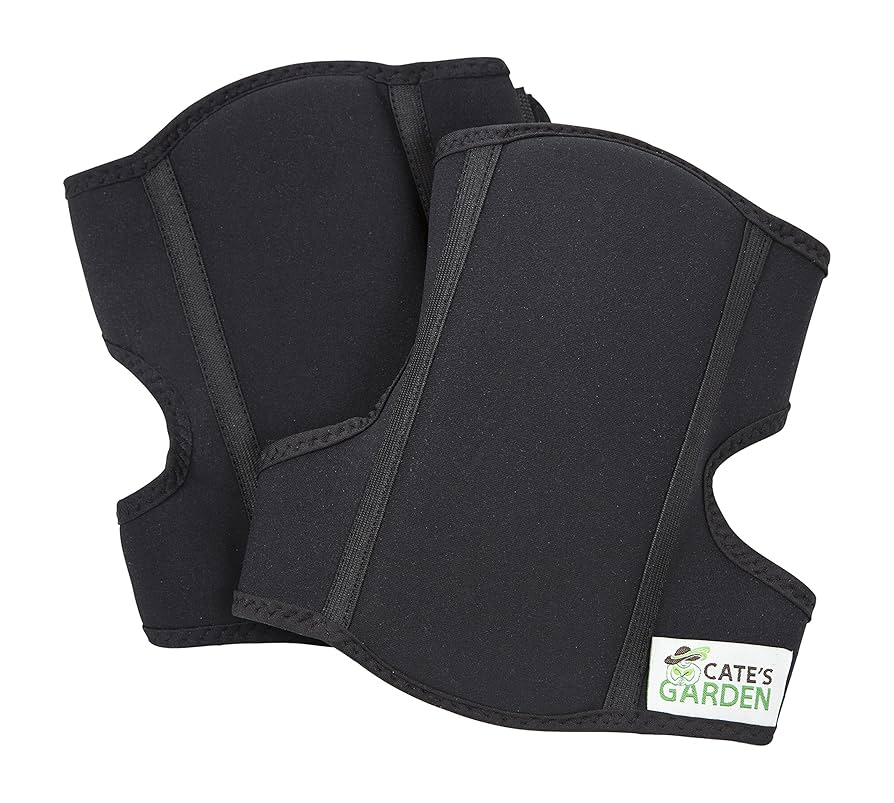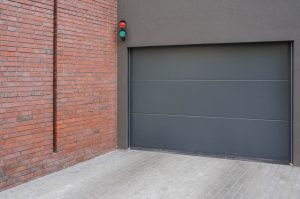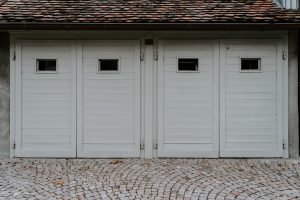Are you tired of sore knees after a long day in the garden? Gardening is rewarding, but kneeling on hard ground can cause discomfort and even injury.
That’s where knee pads for gardening come in. They protect your knees, making your time outside more comfortable and enjoyable. You’ll discover how the right knee pads can transform your gardening experience and keep you going longer without pain. Keep reading to find out what to look for and how to choose the perfect pair for your needs.
Benefits Of Knee Pads In Gardening
Kneeling is common in gardening. It helps reach plants and work close to the ground. Knee pads protect your knees from hard soil and sharp objects.
Using knee pads makes gardening safer and more comfortable. They help you work longer without pain.
Preventing Knee Injuries
Knee pads reduce the risk of cuts and bruises. They protect your knees from rocks and sticks. This lowers the chance of injury during gardening.
They also help prevent long-term damage like knee strain. Soft padding absorbs impact and protects the joint.
Enhancing Comfort During Long Sessions
Knee pads add cushioning to hard surfaces. This makes kneeling less painful. You can garden longer without discomfort.
Many knee pads have breathable materials. This keeps your knees dry and cool. Comfort helps you focus on gardening tasks.
Reducing Strain And Fatigue
Knee pads support your knees and reduce stress on joints. This lowers muscle strain and fatigue. You feel less tired after gardening.
- Protect knee ligaments from pressure
- Distribute weight evenly when kneeling
- Help maintain good posture
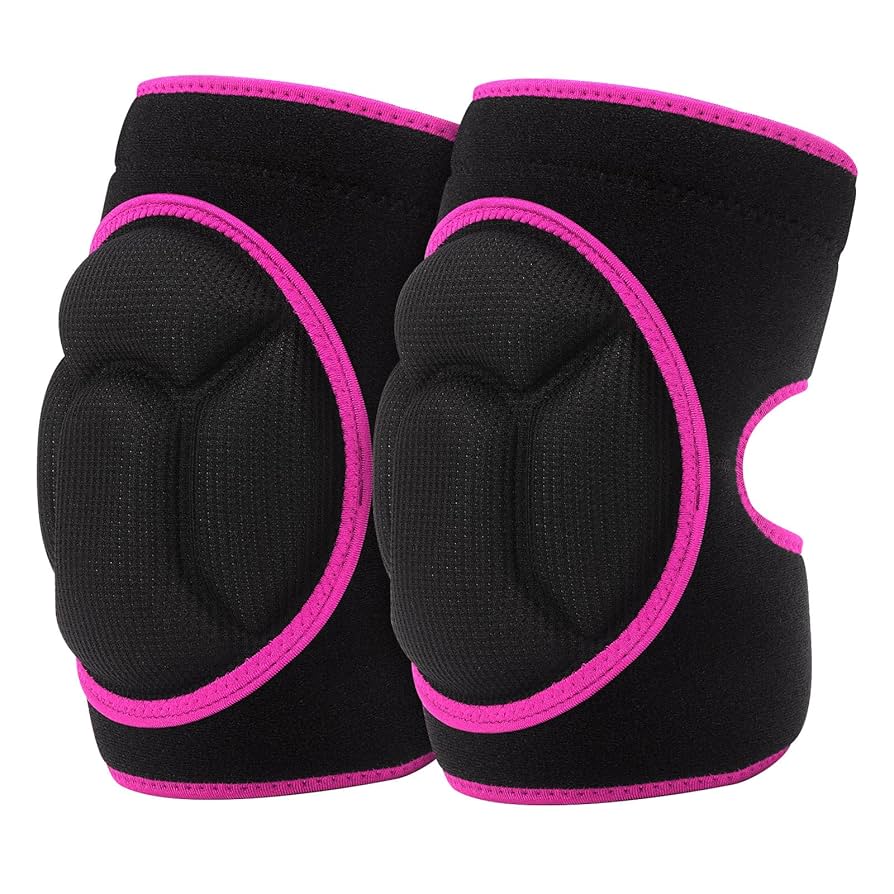
Credit: www.amazon.ca
Types Of Knee Pads
Knee pads protect your knees while gardening. They make kneeling on hard ground easier and safer.
There are different types of knee pads. Each type offers unique comfort and protection.
Foam Knee Pads
Foam knee pads are soft and lightweight. They provide basic cushioning for short gardening tasks.
They are easy to wear and clean. Foam pads work well on soft or grassy surfaces.
Gel Knee Pads
Gel knee pads have a gel layer that absorbs shock. They offer more comfort for longer kneeling times.
Gel pads mold to your knees for better support. They stay cool and reduce pressure on joints.
Hard Cap Knee Pads
Hard cap knee pads have a tough outer shell. They protect knees from sharp objects and rough surfaces.
These pads are good for heavy gardening work. The hard surface also helps when sliding on the ground.
Inflatable Knee Pads
Inflatable knee pads use air to cushion knees. You can adjust the air level for personal comfort.
They are lightweight and easy to carry. Inflatable pads are great for gardeners who move a lot.
Key Features To Consider
Knee pads help protect your knees while gardening. Choosing the right ones makes work easier and safer.
Look for features that fit your needs. Comfort and durability matter most for long use.
Material Quality
Good materials make knee pads last longer and protect better. Soft padding reduces pressure on your knees.
Strong outer layers resist scratches and dirt. Check if the material can handle rough surfaces.
- Dense foam for cushioning
- Durable fabric like nylon or neoprene
- Reinforced outer shell for extra protection
Adjustability And Fit
Knee pads should fit snugly but not too tight. Adjustable straps help you find the right fit.
Good fit keeps pads in place while you move. Check for flexible straps or hook-and-loop fasteners.
- Elastic straps for stretch and comfort
- Velcro fasteners for easy adjustment
- Multiple strap points for secure fit
Water Resistance
Gardening often means wet soil or dew. Water-resistant knee pads keep your knees dry and clean.
Look for materials that repel water but still allow some airflow. This prevents soggy, uncomfortable pads.
- Water-repellent outer fabric
- Sealed seams to stop water entry
- Quick-dry padding inside
Breathability
Breathable knee pads reduce sweat and heat buildup. This keeps your knees cooler during work.
Materials with mesh panels or air vents help air flow. Breathable pads feel more comfortable for long use.
- Mesh fabric for airflow
- Ventilation holes in padding
- Lightweight materials to reduce heat
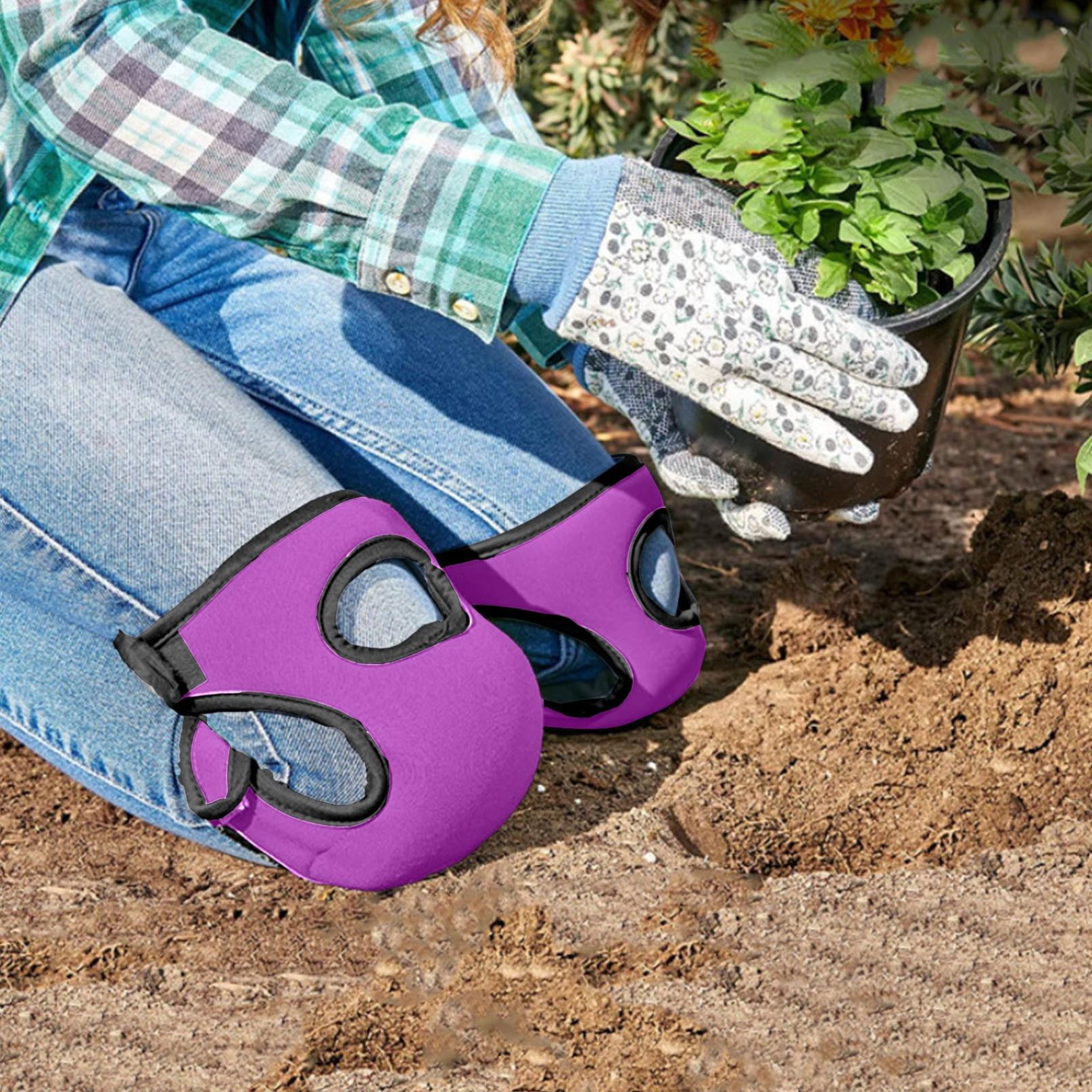
Credit: www.walmart.com
Choosing The Right Knee Pads
Knee pads protect your knees during gardening tasks. They reduce pain and prevent injuries. Choosing the right type helps you work longer and more comfortably.
Different gardening activities need different knee pads. Knowing your needs helps you pick the best pads for your work.
Matching Pads To Gardening Tasks
Choose knee pads based on the type of gardening you do. Soft foam pads work well for light tasks. Heavy-duty pads are best for rough surfaces.
- Light planting: soft foam or gel pads
- Weeding on soft soil: flexible and breathable pads
- Working on concrete or rocks: thick, hard-shell pads
- Long gardening sessions: padded straps and extra cushioning
Sizing Tips
Proper fit keeps knee pads in place and feels comfortable. Measure your knee width and calf size before buying. Adjustable straps help fit most sizes.
| Size | Knee Width (inches) | Calf Circumference (inches) |
| Small | 8 – 10 | 10 – 12 |
| Medium | 10 – 12 | 12 – 14 |
| Large | 12 – 14 | 14 – 16 |
Budget Vs. Durability
Cheaper knee pads cost less but may wear out fast. Durable pads have strong materials and last longer. Decide how often you garden before choosing.
- Low budget: basic foam pads, best for occasional use
- Mid-range: gel or foam with reinforced straps, good for regular gardening
- High-end: heavy-duty pads with hard shells, ideal for rough surfaces and daily use
Maintenance And Care
Knee pads for gardening protect your knees from strain and dirt. Proper care keeps them working well for a long time.
Learn simple cleaning, storage, and replacement tips to keep your knee pads in top condition.
Cleaning Methods
Cleaning your knee pads regularly removes dirt and sweat. This helps avoid bad smells and damage.
- Use a soft brush to remove loose dirt.
- Hand wash with mild soap and warm water.
- Rinse thoroughly to remove soap residue.
- Air dry in a shaded, well-ventilated place.
- Avoid machine washing or drying to prevent damage.
Storage Tips
Store knee pads properly to keep their shape and materials safe. Avoid damp or hot places.
- Keep them in a dry, cool area away from sunlight.
- Do not fold or crush the pads.
- Use a breathable bag or container for storage.
- Check for mold or mildew before storing for long periods.
When To Replace Knee Pads
Know the signs that show your knee pads need replacement. Old pads can lose support and comfort.
| Sign | Why It Matters |
| Worn-out padding | Less knee protection and comfort |
| Torn straps or covers | Poor fit and risk of slipping |
| Persistent bad odor | Indicates bacteria buildup |
| Loss of shape | Reduced support during use |
Top Brands And Models
Knee pads are essential for gardeners, providing comfort and protection for the knees while working on the ground. When choosing the right knee pad, it’s essential to consider the top brands and models available in the market.
Popular Choices For Gardeners
Anker Adjustable Knee Pads
The Anker Adjustable Knee Pads are designed for comfort and flexibility. They feature a soft, breathable fabric and an adjustable strap for a secure fit.
| Features |
|---|
| Adjustable strap |
| Soft and breathable fabric |
| Non-slip base |
Gardener’s Supply Company Knee Pads
The Gardener’s Supply Company Knee Pads are designed specifically for gardeners. They feature a durable, slip-resistant base and a comfortable, cushioned design.
-
Slip-resistant base for secure footing
-
Comfortable, cushioned design for reduced fatigue
-
Durable construction for long-lasting use
Black Diamond Knee Pads
The Black Diamond Knee Pads are designed for heavy-duty use. They feature a rugged, slip-resistant base and a durable, breathable fabric.
| Features |
|---|
| Rugged, slip-resistant base |
| Durable, breathable fabric |
| Adjustable strap |
User Reviews And Ratings
Gardeners have shared their experiences with knee pads, providing valuable insights and ratings. Here are some user reviews and ratings for the popular knee pad brands:
Anker Adjustable Knee Pads
4.5/5 stars – “I’ve used these knee pads for months, and they’re still going strong. The adjustable strap is a game-changer for me.” – Emily R.
Gardener’s Supply Company Knee Pads
4.2/5 stars – “I’ve tried several knee pads, but these are my favorite. They’re comfortable and durable.” – John D.
Black Diamond Knee Pads
4.8/5 stars – “These knee pads are amazing! The rugged base and adjustable strap make them perfect for heavy-duty use.” – Sarah K.
Additional Gardening Comfort Gear
Gardening can be a rewarding hobby, but it can also be challenging on the body. Prolonged kneeling, bending, and lifting can lead to discomfort, pain, and even injury. Fortunately, there are various comfort gear options available to make gardening easier and more enjoyable.
Gloves And Protective Wear
Gloves are an essential part of gardening comfort gear. They protect your hands from thorns, prickles, and dirt. Look for gloves with grip and padding for added comfort and control.
- Choose gloves made from breathable materials like cotton or mesh
- Consider gloves with reinforced palms for added durability
Kneeling Mats Vs. Knee Pads
Kneeling mats and knee pads are both designed to provide comfort and protection for your knees while gardening. Kneeling mats offer a cushioned surface to kneel on, while knee pads provide a protective barrier between your knees and the ground.
Kneeling mats are ideal for gardening on hard surfaces like concrete or wood. Knee pads are better suited for gardening on soft surfaces like grass or soil.
Supportive Footwear
Supportive footwear is crucial for gardening comfort. Look for shoes with good arch support, cushioning, and traction. This will help prevent foot fatigue and injuries.
- Choose shoes with breathable materials like mesh or leather
- Consider shoes with ankle support for added stability
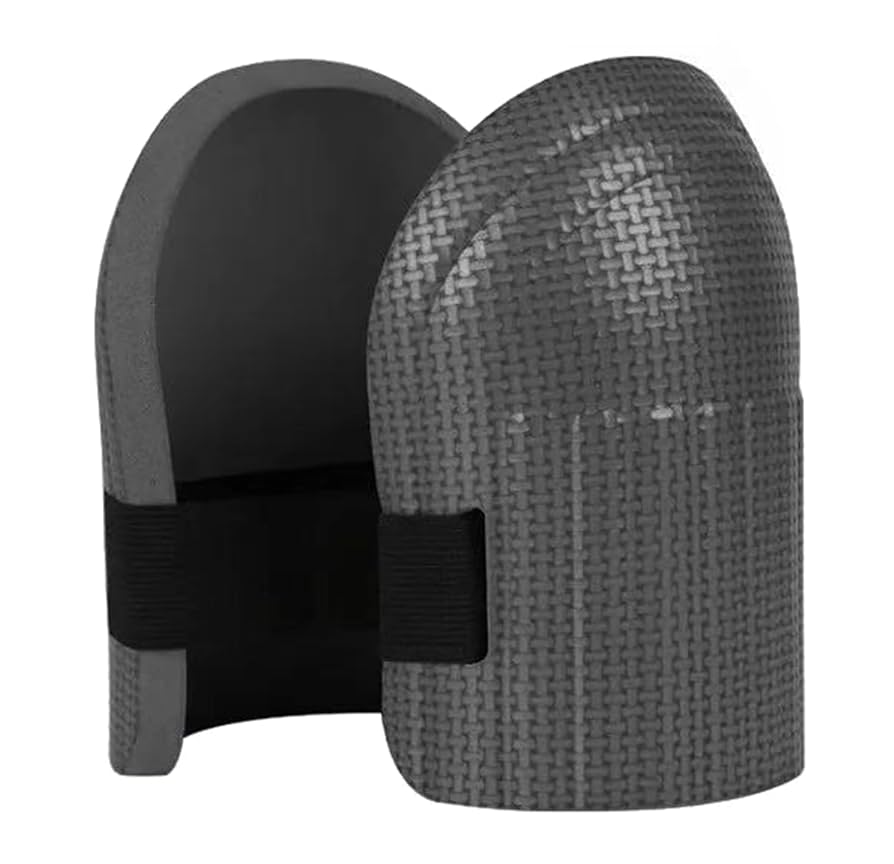
Credit: www.amazon.ca
Frequently Asked Questions
What Are The Benefits Of Knee Pads For Gardening?
Knee pads protect your knees from hard surfaces and sharp objects. They reduce strain and discomfort during long gardening sessions. Using knee pads helps prevent injuries and keeps your knees clean and dry. They improve comfort and efficiency while working outdoors.
How To Choose The Best Knee Pads For Gardening?
Look for knee pads with durable padding and adjustable straps. Choose waterproof and breathable materials for comfort. Ensure they fit snugly but not too tight. Lightweight and flexible knee pads allow better movement during gardening tasks.
Can Knee Pads Prevent Knee Injuries In Gardening?
Yes, knee pads cushion and support your knees, reducing impact. They protect against cuts, bruises, and pressure sores. Wearing them lowers the risk of long-term joint pain. Knee pads are essential for safe and comfortable gardening.
Are Gardening Knee Pads Suitable For All Ages?
Absolutely, knee pads are beneficial for gardeners of any age. They provide protection and comfort regardless of experience level. Older gardeners especially benefit from added joint support. Proper knee protection helps maintain mobility and enjoyment.
Conclusion
Gardening can be hard on your knees. Good knee pads make a big difference. They protect and add comfort. You can work longer without pain. Choose pads that fit well and feel soft. Durable materials last through many seasons. Wearing knee pads helps prevent injuries.
Your gardening time becomes more enjoyable. Take care of your knees while you garden. A small change brings great comfort. Try knee pads for a better gardening experience.


